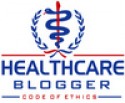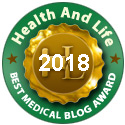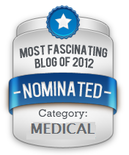Traditionally, the criteria for a physician to advance to a leadership position have included academic and/or clinical accomplishments, rather than the distinctive competencies needed to lead. Furthermore, traditional physician training and the unique characteristics of physicians — we tend to value autonomy and, outside of structured interactions (such as the operating room or intensive care unit), may have poorly developed team reflexes — can handicap developing leadership skills.
Though developing great leaders and embracing change are well-established characteristics of frontrunner organizations in many industry sectors, healthcare organizations have generally lagged behind. What’s more, many healthcare organizations are structured in silos or “fiefdoms,” which represent a challenging environment in which to lead. Only recently are healthcare organizations awakening to the importance of developing physician-leaders and, in this context, offering physician-leadership programs.
I suggest that four features of physicians and medical training may conspire against physicians’ having instincts or “reflexes” to collaborate. I believe that physicians:
1. experience long and hierarchical training, often with extended subordination;
2. are extensively evaluated, usually based on individual performance (e.g., board certifications, competition for training slots, etc.) rather than on group or team-based performance (which many suggest is more relevant to achieving excellent clinical outcomes);
3. may experience “extrapolated authority,” in which we extend the clinical authority that is conferred to us by patients (i.e., to address their illness and contribute to their well-being) to settings for which this clinical authority is irrelevant (e.g., driving on the highway, getting on an elevator, etc.); and
4. are “deficit-based thinkers;” specifically, because differential diagnostic thinking encourages physicians to identify problems (deficits) and because clinical skill reinforces the value of problem-solving, physicians may be hampered in the ability to adopt an “appreciative” type of thinking that is felt better suited to solving organizational challenges.
As an example of appreciative thinking, appreciative inquiry is an approach to organizational change and opportunity that builds momentum for change based on images of “the best of what could be” rather than the shortcomings of the current state. Because of the strong reflex for deficit-based thinking, physician-leaders must learn to switch nimbly between different reasoning and thinking processes — one that is “deficit-based,” narrowly focused and well-adapted for clinical practice and another that is more divergent or “appreciative” for thinking about organizational or system issues and challenges.
As another example of the skills needed to lead, in a study published in the American Journal of Medicine in 2006, interviews of 10 academic internal medicine chairs were conducted to determine the competencies for organizational success. The chairs identified several critical leadership success factors including mastery of visioning, communication, change management, “emotional intelligence” (EI), team building, business skills, personnel management and systems thinking. Emphasizing the importance of EI, which consists of competencies regarding self-awareness, self-management, social awareness and relationship management, these chairs “stated that this ability was fundamental to their success and its absence the cause of their failures.”
When physician leaders are selected based on traditional academic and clinical success rather than on leadership readiness or skill, we can identify both a gap and an opportunity. As one chair stated, “The fact is that the majority of chairs are chosen for skill sets that have little to do with the skill sets they are going to need to use.” In this gap between current practice and actual need lies the rationale and energy to develop physician-leaders.
The healing mission and ethical imperative of medicine further underscores the importance of optimizing physician-leaders’ skills. Congruence with a healing mission requires that physician-leaders possess and model the traits of compassion and hopefulness, traits that inform “resonant leadership.”
Finally, there is a clamor for leadership development among current trainees, who identify important deficits and needs for leadership training. For example, in a survey of surgical residents at a large academic medical center, more than 75 percent identified a deficit in their knowledge of leadership theory and in specific traits (e.g., conflict resolution); more than half reported at most average competence in other traits (e.g., challenging the status quo, inspiring others, helping others optimize performance, etc.).
At the same time, questions that require further attention include: (1) What are the competencies that characterize the optimal physician-leader and (2) what are the features (e.g., format, curriculum) of the ideal program to train physician-leaders?
After much research and observation, I have suggested six domains of needed competencies for effective physician-leadership. These competencies include: (1) technical knowledge (e.g., operations, finance and accounting, information technology and systems, human resources (including diversity), strategic planning, legal issues in healthcare and public policy); (2) knowledge of healthcare (e.g., reimbursement strategies, legislation and regulation, quality assessment and management); (3) problem-solving prowess (i.e., around organizational strategy and project management); (4) emotional intelligence (i.e., the ability to evaluate self and others and to manage oneself in the context of a group); (5) communication (i.e., in leading change in groups and in individual encounters, such as in negotiation and conflict resolution); and (6) a commitment to lifelong learning.
Although many questions remain unanswered, such as what are the best learning formats in which to cultivate these competencies and at what point in one’s training are the competencies best developed, I believe that those institutions that discover the answers and implement the solutions will design the future of leading healthcare.

 RSS Feed
RSS Feed































